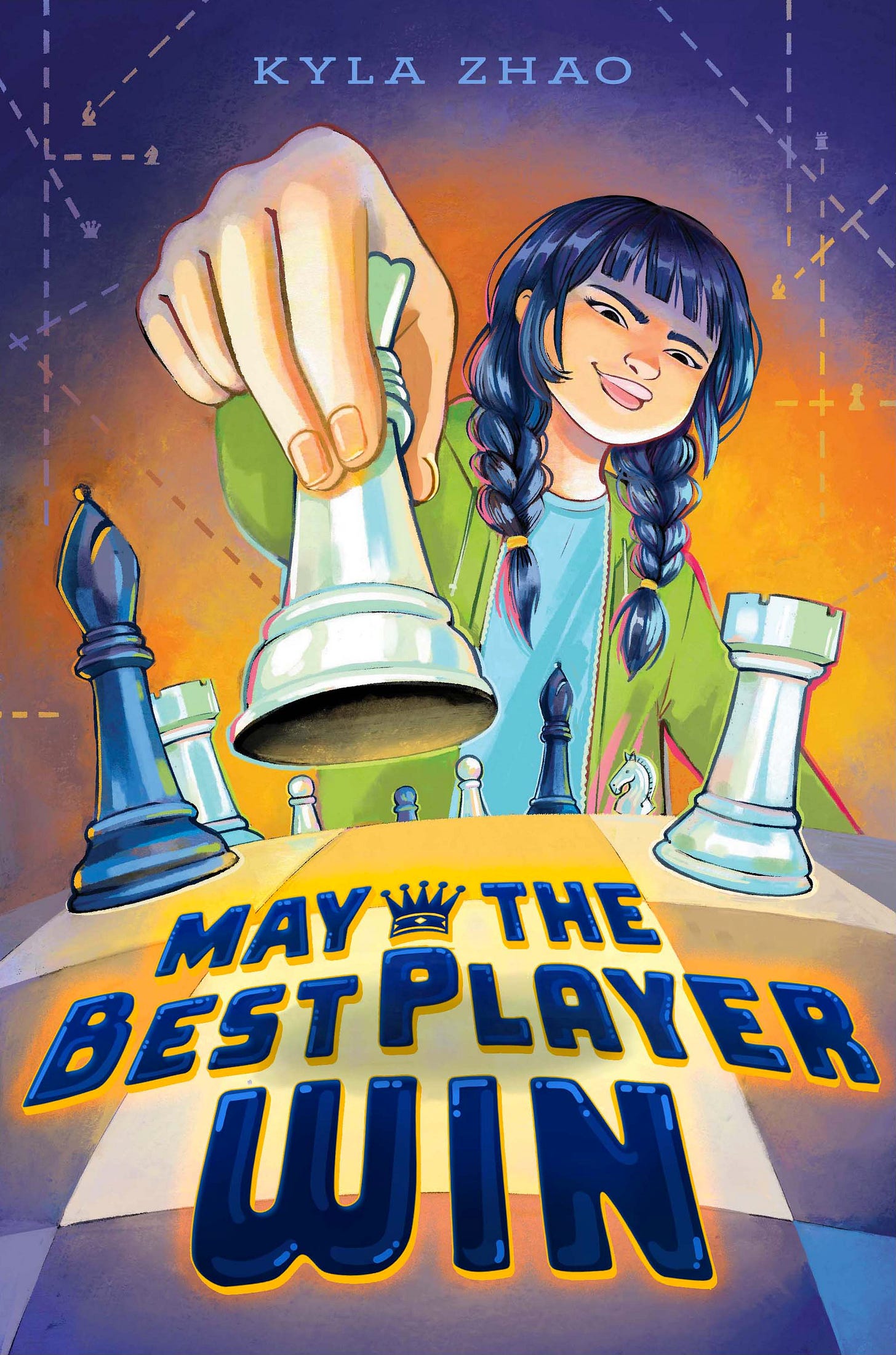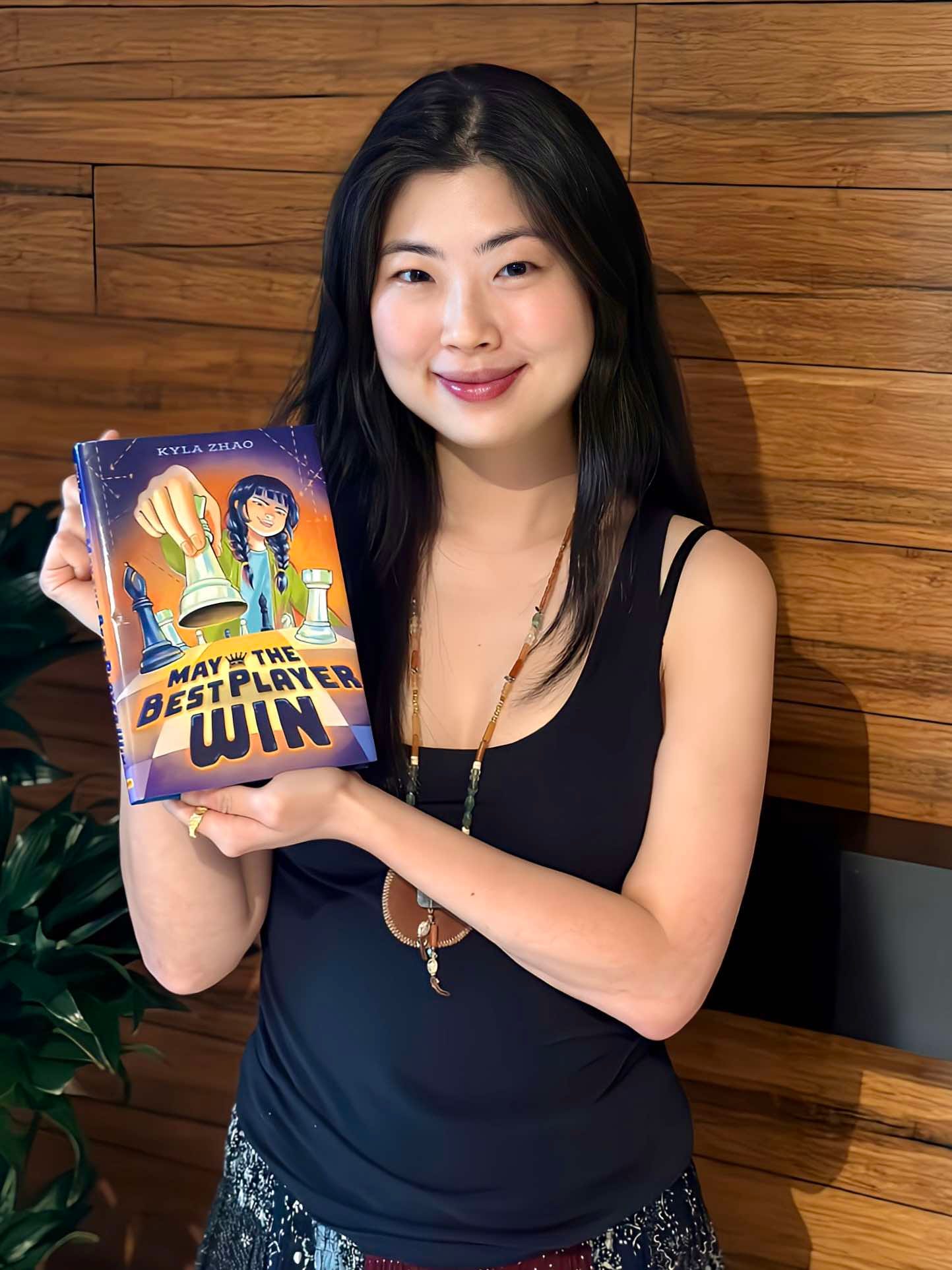Should You Write Every Day?
Writing Advice Remix with MAY THE BEST PLAYER WIN author Kyla Zhao
“Write every day” is classist advice. Especially when it’s offered without acknowledging the diverse financial or familial situations a writer might be in.
Welcome back to Writing Advice Remix, the series where we take common writing advice and remix it for practical application.
joins us today to talk about the ever-present advice that writers should “write every day.” Kyla is a Forbes 30 Under 30 honoree who writes across age categories. Since 2023, she has published three books all while working full-time in the tech industry. These books include her adult novels, The Fraud Squad and Valley Verified, and her middle grade debut, May the Best Player Win1.As a writer with a full-time job, Kyla finds “write every day” to be counterproductive advice. Here’s what she recommends writers do instead.

1. What’s the worst piece of writing advice you’ve ever heard?
“Write every day.”
I know this advice is meant to build discipline, and it works for some people—but for me, it became a source of guilt more than motivation. Life is full and messy. Between a full-time job, book deadlines, and, well, trying to be a human being, writing every single day just isn’t feasible. And when I couldn’t stick to that schedule, I felt like I’d already failed—and that just sucks all the joy out of writing for me. Not the most helpful mindset to create from!
2. How would you reframe this advice into something helpful for writers?
“Write regularly in a way that’s sustainable for your life.”
I think this removes the pressure while still encouraging commitment to a goal. The truth is, writing a book is a marathon, not a sprint. Life comes in waves—some weeks I write daily, and others, I don’t write at all. And that’s okay. You don’t need to write every day to be a real writer—you just need to keep coming back to it.
3. What are three concrete steps a writer can take to incorporate this revised advice into their writing process?
Never stop at the end of a scene or chapter. Always write the first couple of sentences of the next scene before you stop. That way, you’re not facing a blank screen when you return—you’re easing back in with a foothold already in place.
Set small, process-focused goals. Instead of “finish chapter 10,” try “write for 20 minutes” or “add 150 words.” It lowers the pressure and makes progress feel doable on any day.
Experiment to find your rhythm. Try writing at different times and frequencies to see what actually works for you. Morning pages? Weekend sprints? One night a week with a glass of wine and lo-fi beats? Great. Own that. Track when you feel most creative, and shape your routine around that—not what someone else says works.
4. Let’s talk about May the Best Player Win. How did you integrate this advice into your own writing process?
My book, May the Best Player Win, stars a chess prodigy navigating pressure, stereotypes, and what it means to find confidence in a space where you’re often underestimated. It’s a family-friendly version of The Queen’s Gambit that also explores friendship, ambition, and joy.
I started the first draft back when I was a third-year student at Stanford University, and by the time the book hit shelves, I’d already been working full-time for three years. Even though it’s the shortest novel I’ve written, it took me the longest—four years! But honestly, it’s the one I’m proudest of. I needed that time to tell the story the way it deserved to be told.
I worked on it whenever I could—weekends, lunch breaks, late nights. Some chapters came together in a day, others took weeks. But what mattered was that I didn’t give up—I kept returning, again and again. I gave myself permission to write slowly, and eventually, it became something I was truly proud and excited to share with the world.
5. What's the most important lesson you've learned about craft?
Write in the voice that feels most natural to you. For the longest time, I wished I could write that kind of lush, lyrical prose—the beautiful, poetic style I’ve always admired in other authors. But the truth is, that’s just not how I write. Once I stopped forcing it and leaned into the voice that came more instinctively—sharp, sincere, a little funny—my stories got better.
The writing you do best is the writing that sounds most like you. Don’t try to mimic someone else’s voice. The world already has theirs—but it’s still waiting for yours.
So, what’s your take? Do you write every day? If not, how do you make writing a priority in your daily life? Let’s chat about sustainable writing habits in the comments:
Kyla Zhao is an award-winning author whose novels spotlight women and girls of color challenging gender stereotypes. Her books have earned honors from the California State Assembly, the American Library Association, and the U.S. National Spelling Bee, as well as featured by CBS, NBC, Good Morning America, Vogue, and Buzzfeed.
Named a Forbes 30 Under 30 honoree and a Tatler Leader of Tomorrow, Kyla has also presented at organizations like Twitch, Pinterest, Tencent, Oracle, and Harvard on topics including representation, bridging STEM and the arts, and storytelling as a tool for empowerment. She graduated from Stanford University in 2021 (MA in Communication, BA in Psychology) and now brings her creative spirit to her work in tech in Silicon Valley.
Where to Find Kyla Zhao:
About her latest children’s novel, May the Best Player Win
Described as a family-friendly take on The Queen's Gambit, May the Best Player Win explores stereotypes and the pressure to succeed through the eyes of a chess prodigy, who makes a high-stakes bet with her biggest rival that girls can be as good as boys at the game. Carissa Yip, the current US Women's Chess Champion, called the book: "A game-changer for readers of all ages, regardless of whether you play chess! This book will have you inspired to conquer your next match in life."
Available as print book, eBook, and audiobook on Bookshop
About her latest adult novel, Valley Verified
Imagine The Devil Wears Prada meets Legally Blonde, but this time Elle Woods is a young Asian woman tackling the cutthroat startup world. In Valley Verified, Zoe Zeng is forced to leave her fashion job and take on a new challenge at a Silicon Valley startup, where she must secure an eight-figure investment that could make or break the company—and her future. In this cutthroat land of tech bros, this fashion transplant will have to tackle judgmental coworkers, tech billionaires and her own insecurities to prove she’s more than what meets the eye.
Available as print book, eBook, and audiobook on Bookshop
Until next time,
Kat
This post includes affiliate links. I may receive a commission if you make a purchase through these links. Purchasing books through the Craft with Kat Bookshop supports the free writing resources I share here on Substack.





Thank you for this post! I might also add that in addition to being classist, this advice is extremely ableist. I have numerous chronic illnesses, which means that my pain, energy level, even my vision, ebb and flow. In a flare, I may go weeks without writing a single word. And it’s crucial when I’m feeling well not to overextend myself (something I do regularly because I also have job and two kids). “Write every day” strikes me more as an extension of hustle culture than legitimate advice for a creative life; we think that our success and worth are dependent upon productivity, so our routines and practices—even our creativity!—must be a constant exercise in production. That’s simply not possible or healthy for many of us.
This is so great advice to find one’s own voice and not feel obligated to write daily. Thank you for sharing these great tips!